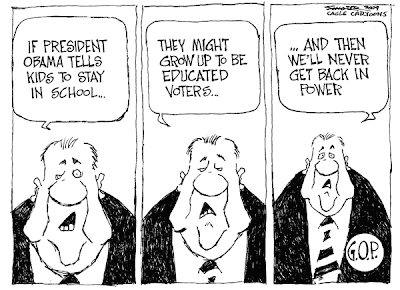2 Nephi Chapter 2 was first analyzed by Isaac.
Beginning in verse 11, Lehi begins this long chain of reasoning. He states that "there is opposition in all things." He uses the example that there is righteousness and wickedness, holiness and misery, corruption and incorruption, sense and insensibility. With these examples of opposition, some may say that there is no such thing as righteousness and wickedness. This could partly be the result of one's faith. However, in order to make his argument more complete, he also uses the opposition of good and bad, life and death, and happiness and misery. Most people have experienced or witnessed these things, whether it is breaking something, losing a loved one to death, or enjoying a favorite pastime. By giving these everyday examples Lehi is able to create acceptability since they are true for most people and considered "common sense."
Sufficiency is also a great tactic when expressing logos. Lehi gives a variety of examples, about twenty or so, of opposition. Now twenty-something examples may seem a bit overwhelming, but he examples are very simple, and therefore, effective. He expands his thoughts to create an "full circle" idea. By connecting all his examples of opposition, Lehi builds accountability that "offer[s] an effective response to other...argument...counterarguments, and counterexamples". (W & R, p. 75, par. 7) He states, "And if ye shall say there is no law, ye shall also say there is no sin. If ye shall say there is no sin, ye shall also say there is no righteousness. And if there be no righteousness there be no happiness. And if there be no righteousness nor happiness there be no punishment nor misery. And if these things are not there is no God. And if there is no God we are not, neither the earth; for there could have been no creation of things, neither to act nor to be acted upon; wherefore, all things must have vanished away." (verse 13) It's clear to see from Lehi's argument that since there are things here on Earth and that things are acted upon, or have opposition, there must needs a purpose.
In verse 13, acceptability is also present. During ancient times, scientific advancements and knowledge was quite limited. They knew nothing about the idea of cells and organisms or the Big Bang Theory and evolution. Without this knowledge, it was acceptable to believe in a higher intelligence such as God to explain why Earth and the things on it were created. "Community-based reasons" is a part of acceptability that is defined as "reasons that are grounded in the common beliefs of the community...what [they] accept as credible...or true--the common sense or common knowledge." (W & R, p. 73, par. 1)
Continuing in his use of acceptability, accountability and reasoning, Lehi draws upon his own observations. He says, "there is a God, and he hath created all things, both the heavens and the earth, and all things that in them are, both things to act and things to be acted upon. And to bring about his eternal purposes...all things which are created, it must needs be that there was an opposition; even the forbidden fruit in opposition to the tree of life; the one being sweet and the other bitter. Wherefore, the Lord God gave unto man that he should act for himself. Wherefore, man could not act for himself save it should be that he was enticed by the one or the other. And I, Lehi, according to the things which I have read, must needs suppose that an angel of God, according to that which is written, had fallen from heaven; wherefore, he became a devil, having sought that which was evil before God." (verses 14-17)
Lastly, Lehi uses his presented idea of opposition because of its relevance to choose the "good part." His thoughts allows him to deliver the conclusion that men are free to "to act for themselves and not to be acted upon...[and] are free to choose liberty and eternal life, through the great Mediator of all men, or to choose captivity and death, according to the captivity and power of the devil." (verses 26 & 27) By approaching his argument with logos, Lehi convinces his son Jacob and many other to choose to come unto Christ.
